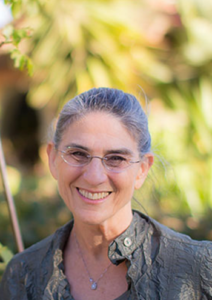When Josea Kramer, Ph.D., began working at the Veterans Health Administration (VA), she asked, “How can the VA and the Indian Health Service (IHS) work together to improve care for elders?” After the VA and IHS agreed to share certain resources, such as education, that answer became clear.
As the Associate Director for Education/Evaluation of a Geriatric Research, Education and Clinical Center (GRECC), she founded and directs VA Geriatric Scholars Program.
This national VA workforce development program educates healthcare professionals working in primary care clinics to improve healthcare for older people. These licensed healthcare professionals include doctors, nurses, physician assistants, pharmacists, psychologists, social workers, and rehabilitation therapists. The Geriatric Scholars Program courses and webinars are accredited for continuing education (CME/CEU) for VA and non-VA clinicians.
Improving the knowledge and skills of healthcare and aging services professionals to recognize the signs and symptoms of dementia, and the best ways to support families and caregivers of older adults with dementia are part of the eight strategies outlined in the CDC’s Road Map for Indian Country.
Two of the Geriatric Scholars Program courses offered to IHS and Tribal Health Programs address the strategy for workforce enhancement: Rural Interdisciplinary Team Training (RITT) and a new program called Addressing Challenging Behaviors with Dementia (ABCD) that was created for IHS public health nurses and staff. The two training programs work together to support a community approach for IHS and Tribal Health Programs.
RITT, the interdisciplinary training, empowers all members of the team– clinicians, clerks, others who interact with elders — to recognize and address nine health or safety concerns that should be discussed during a primary care visit. The course also covers geriatric syndromes and how to assess problems, such as falls and changes in thinking, activities, and function. RITT also includes training on screening for cognitive impairment. The program was created first for rural VA clinics, which like IHS clinics, may have few local specialty healthcare resources. RITT is offered on-site (pending COVID travel restrictions) and is available virtually. Participants receive a training binder and toolkit with resources, including pocket cards, articles, DVDs, and more. Rural IHS and tribal health centers are eligible for the training free of charge.
The newer ABCD program builds on public health nursing skills in primary prevention. These nurses already engage the community to manage diabetes and high blood pressure and promote brain health. Recognizing that they also are or will be working with community members who experience memory disorders, ABCD aims to enhance secondary prevention, including how to recognize signs and symptoms of dementia in someone who has not yet been diagnosed, and tertiary prevention, including home safety and support for caregivers in managing challenging behaviors and their own self-care. The course is supplemented by monthly telephone consultation calls and case conferences for participants. A nationally recognized expert in dementia care leads it.
While both training programs are geared to licensed healthcare professionals, Kramer encourages the clinic to invite other participants with non-medical roles in the clinic or in the community. So far, these invitees include the bus driver, transportation coordinator, public safety officer, tribal council member, assisted living center director, traditional medicine healer, and community health worker.
According to Kramer, training has been slowed as VA, IHS, and public health staff has been redeployed to help manage the COVID crisis. The RITT program has been reformatted to be delivered virtually over the internet instead of face-to-face. For some, distant learning presents both technological challenges in broadband access or quality and learning challenges in reduced interactions between participants and between participants and faculty. And, of course, over the last two years, we recognize “Zoom fatigue” also may limit engagement. Ideally, “we teach and model listening, creating engagement and trust within a team and between a healthcare team and its clients,” says Kramer.
The VA Office of Rural Health generously funds the VA Geriatric Scholars Program to train rural VA and IHS clinics.
Dr. Kramer is part of the IA2 national advisory group for the American Indian and Alaska Native Brain Health Resource Center. IA2 is working with Dr. Kramer to pilot virtual training for tribal staff in 2022 on these two Geriatric Scholars programs. Stay tuned for more information.


[…] • Contact Dr. Josea Kramer with the VA about free training for your community health staff on “Addr… […]